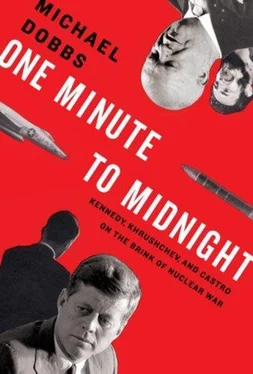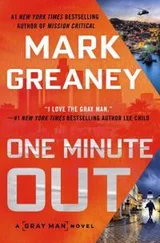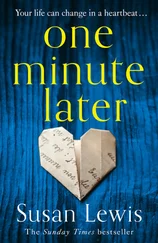“How else are we gonna get those missiles out of there?” JFK wanted to know.
In moments of crisis, the person in whom Kennedy had most confidence was Bobby. He saw him as “a puritan, absolutely incorruptible.” But his brother’s most important characteristics, from JFK’s point of view, were his “terrific executive energy” and his intuitive, “almost telepathic” understanding of the president’s wishes. The White House was full of exceptionally intelligent people brimming with brilliant ideas. The problem was getting things done. Bobby was a superb organizer. Jack trusted his brother to implement his will.
In their different ways, both men had been profoundly changed by their shared experiences of the last twelve days. When they first heard about the presence of Soviet missiles in Cuba, their immediate reaction had been anger, even pique, at being thwarted by Khrushchev. They had come very close to bombing the missile sites. Now they were desperately looking for ways to step back from the edge of a nuclear abyss.
Working in the president’s private office, Bobby and Ted Sorensen had managed to merge the rival letters to Khrushchev into a single document. The final version bore the marks of many authors:
I have read your letter of October 26th with great care and welcome the statement of your desire to seek a prompt solution to the problem. [Original State Department draft, written mainly by Ball and his deputy, Alexis Johnson]
The first thing that needs to be done, however, is for work to cease on offensive missile bases in Cuba and for all weapons systems in Cuba capable of offensive use to be rendered inoperable…. [Stevenson/JFK] Assuming this is done promptly, I have given my representatives in New York instructions that will permit them to work out this weekend—in cooperation with the Acting Secretary General and your representative—an arrangement for a permanent solution to the Cuban problem [Stevenson] along the lines suggested in your letter of October 26th. As I read your letter, the key elements of your proposals—which seem generally acceptable as I understand them—are as follows: [RFK]
1. You would agree to remove these weapons systems from Cuba under appropriate United Nations observation and supervision; and undertake, with suitable safeguards, to halt the further introduction of such weapons systems into Cuba. [State]
2. We on our part, would agree—upon the establishment of adequate arrangements through the United Nations to ensure the carrying out and continuation of these commitments—(a) to remove promptly the quarantine measures now in effect [State] and (b) to give assurances against an invasion of Cuba….[ ExComm discussion ]
The effect of such a settlement on easing world tensions would enable us to work toward a more general arrangement regarding “other armaments,” as proposed in your second letter which you made public. [Stevenson]
I would like to say again that the United States is very much interested in reducing tensions and halting the arms race [JFK] and if your letter signifies that you are prepared to discuss a detente affecting NATO and the Warsaw Pact, we are quite prepared to consider with our allies any useful proposals. [Stevenson]
But the first ingredient, let me emphasize, is the cessation of work on missile sites in Cuba and measures to render such weapons inoperable, under effective international guarantees…. [JFK]
The president wanted Bobby to deliver the letter personally to the Soviet ambassador, Anatoly Dobrynin, along with an oral message emphasizing the gravity of the situation. Unbeknownst to the rest of the ExComm, Bobby had already telephoned Dobrynin and asked to meet with him at the Justice Department, six blocks down Pennsylvania Avenue from the White House.
As the ExComm meeting broke up, Kennedy invited a select group of his advisers—including RFK, McNamara, Rusk, and Bundy—into the Oval Office to discuss the oral message Bobby would deliver to Dobrynin. He excluded LBJ and McCone from this session. The inner ExComm agreed that Bobby should warn the ambassador that time was running out and “further American action was unavoidable” if Khrushchev rejected the terms outlined by the president. That left the issue of how to respond to Khrushchev’s call for a Cuba-Turkey trade beyond the promise in the letter to discuss “other armaments,” diplomatic code for the Jupiters.
Drawing on a cable from the U.S. ambassador to Turkey, Rusk had thought of a way to reconcile the differences in the ExComm. He suggested that Bobby simply inform Dobrynin that the Jupiters would be withdrawn soon anyway. That way, the obsolete American missiles would not be an obstacle to an agreement. But they would also not become a pretext for further haggling. To avoid giving the impression of a Soviet-American bargain at the expense of the Turks, it was important that the unilateral assurance on the Jupiters remain confidential. The secretary of state’s ingenious attempt to square the circle quickly won unanimous support.
Knowledge of the arrangement would be tightly held, everybody agreed. In Bundy’s words, “No one not in the room was to be informed of this additional message.” Furthermore, the Soviets would have to observe the same secrecy, or the commitment would become “null and void.”
8:05 P.M. SATURDAY, OCTOBER 27
Anatoly Dobrynin had mixed feelings about Bobby Kennedy. For the genial Russian diplomat, RFK was a “complex and difficult person who often lost his temper.” He “behaved rudely,” working himself into a state about Soviet misdeeds, real and imagined. Their conversations tended to be “uneven and broken.” Bobby seemed to regard himself as an expert on foreign policy, but he knew little about the rest of the world. During his one visit to the Soviet Union, in 1955, he had gone out of his way to offend his hosts, inquiring about Soviet techniques for “tapping telephone conversations” and criticizing the lack of freedom. Nevertheless, he was the president’s brother, and the best channel for direct, informal communications between the Kremlin and the White House.
They had seen a lot of each other in the seven months since Dobrynin arrived in Washington. To break the ice, Bobby had invited the new ambassador out to his home in McLean, introducing him to his “rather tumultuous family.” On the subject of Cuba, Dobrynin thought that Bobby was “impulsive and excitable.” He viewed RFK as one of the hawks on the ExComm, pushing his brother to take “a firm approach,” up to and including an invasion of the island. At their previous meetings, Bobby had angrily denounced Soviet trickery and “deception.” Summoned to the Justice Department on Saturday evening, Dobrynin braced for yet another explosion.
Instead, he encountered a subdued, almost distraught individual in a vast, dimly lit office decorated with children’s paintings. In a cable to the Foreign Ministry written immediately after the meeting, Dobrynin described the attorney general as “very upset,” with little of his normal combativeness. He had never seen him like this before. “He didn’t even try to get into fights on various subjects, as he usually does. He persistently returned to one theme: time is of the essence and we shouldn’t miss the chance.”
Instead of the standard diplomatic demarche, Bobby addressed the Soviet ambassador as a fellow human being trying to save the world from nuclear destruction. He began by describing the shootdown of the U-2 and the firing on low-level U.S. Navy jets as “an extremely serious turn in events.” He was not delivering an ultimatum; he was simply laying out the facts.
“We’re going to have to make certain decisions within the next twelve, or possibly twenty-four, hours. There’s very little time left. If the Cubans shoot at our planes, then we are going to shoot back.”
Читать дальше












